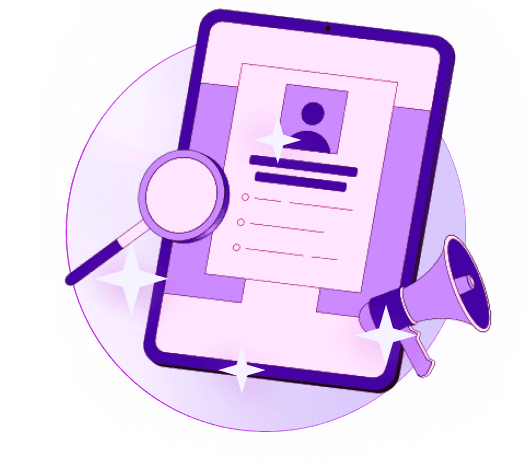Blogs
Articles


5 AI Sales Agent Case Studies Showing Real Business Impact
The numbers tell an amazing story - 61% of businesses see better sales results after they start using AI technologies. These ai sales agent case studies show how companies are changing their revenue operations.
AI-powered tools will become standard for 75% of sales teams by 2025. That's why learning from successful AI implementations matters now more than ever. This piece will get into five powerful AI business case studies.
These examples show how smart assistants create measurable results in sales functions of all sizes - from finding new leads to keeping customers happy.
AI Sales Agent Use Case: Lead Generation and Qualification
Sales teams spend a lot of time generating and qualifying leads. Research shows sales reps waste about 40% of their time on leads that go nowhere. This costs companies between $10,000 and $30,000 per sales rep every year. AI sales agents are changing this game.
Example: Waiver Group's AI Bot
The Waiver Group had a common problem. The healthcare consulting firm needed more consultations and qualified leads without extra work. They didn't want to hire more people or accept poor results. Their solution? An AI-powered chatbot named "Waiverlyn".
This smart assistant had three main jobs:
Automatic consultation booking - Waiverlyn sets up Google Calendar events and adds video links. It sends detailed email invites to everyone involved. No more back-and-forth emails about scheduling.
Simplified lead qualification - The bot talks naturally with potential clients to gather contact details and qualification data. It updates the sales team's Google Sheets right away and sends email alerts. The sales team can keep using their usual tools while the chatbot helps out.
Accelerated client onboarding - Ready-to-buy clients can go straight to a self-serve portal. They create accounts and upload documents immediately. Clients get started faster and feel happier with the service.
Impact: 25% more consultations booked
The numbers tell the story. The Waiver Group booked 25% more consultations after adding Waiverlyn. The investment paid off in just three weeks. This quick success shows how AI sales agents can boost business fast, without long setup times or training.
Other companies using AI for lead qualification see big wins too:
Lead numbers jump up to 50%
Conversion rates improve by up to 47%
AI lead scoring helps close 40% more deals
Sales opportunities grow by 181%
AI Salesperson Role: Automating early funnel tasks
Waiver Group's success shows where AI sales agents shine: handling those early sales tasks that eat up time and money.
AI sales agents take care of many basic but important jobs:
Initial engagement and qualification - Chatbots jump in to help website visitors right away. They ask smart questions about what people need, their budget, and when they want to buy.
Data collection and management - These AI helpers gather contact details and buyer preferences. Everything goes straight into the CRM system. Sales teams always have updated information at their fingertips.
Lead scoring and prioritization - Smart algorithms figure out which leads look most promising. Sales reps can focus on the best opportunities.
Initial follow-up and nurturing - AI keeps leads warm with personalized messages. It can set up meetings and suggest next steps.
AI Sales Agent Use Case: Customer Support and Retention
Customer support can make or break relationships with customers. Research shows that 92% of companies have adopted AI to some degree in 2025. This shows a big change toward smart solutions that manage customer interactions. Companies that feel overwhelmed with support requests find this switch particularly helpful since traditional teams don't deal very well with high volumes.
Example: Ruby Labs
Ruby Labs creates customer-facing software apps that range from health coaching to astrology and self-directed tutoring. Their health-coaching app Able became their first big win and drew over 500,000 users just months after launch. This quick growth created a challenge: they had to find ways to give quality support to their growing user base.
"When we first started out—as a small two-app company—Ruby Labs could manage their customer support with employees alone," explains Alex Bogdan, Head of Support at Ruby Labs. "But after we scaled and brought in more products, it would have been impossible to help with subscription management using employees. We would have needed 100 people".
Ruby Labs took a bold step forward. They chose AI agents as their strategic answer to handle growing support needs instead of adding more people to their support team.
Challenge: High support volume
Ruby Labs faced a massive support challenge 4 million support interactions every month. Most support teams would buckle under this volume, which leads to customers waiting longer and getting inconsistent service quality.
Their users needed reliable support for several key tasks:
Canceling or managing subscriptions
Processing refunds
Resolving technical issues
Answering product questions
The company had two choices before AI: hire many more support staff or watch their service quality drop. Neither option made sense financially or strategically as they grew.
Ruby Labs needed a solution that balanced three essential elements:
Cost-effectiveness
Service quality
Customer satisfaction
Many companies face this same challenge. Industry research shows 82% of service professionals report higher customer demands. This makes old support models harder to maintain.
Solution: AI agent resolving 98% of chats
Ruby Labs worked with Botpress to build a complete AI agent system. Their AI agents handle everything from the first customer contact through to solving their problem.
Users who need help just open a help widget and pick what they need (account cancelation, billing questions, technical help, or general information). The AI takes care of the rest.
Their system works so well because it goes deep. Their AI agents do more than answer basic questions - they handle complex tasks:
Identity verification: The AI emails verification links to users who want to manage their subscriptions
Complete subscription management: Users can upgrade, downgrade, or cancel subscriptions through the AI
Automated refund processing: The system handles refunds without human help
Proactive retention: The AI offers special discounts to keep users before they cancel
Their smart AI setup has paid off big time. The system reaches a 98% resolution rate. Only 2% of users need human help after talking to the chatbot. Ruby Labs' AI performs better than industry standards, where most systems handle much less.
Bank of America's virtual assistant Erica answers 98% of basic questions but handles fewer total customer interactions.
Results: $30K/month saved in churn prevention
Ruby Labs has seen huge benefits from their AI across several areas:
The AI now handles work that would need about 100 employees, which saves a lot on operations. With 4 million monthly interactions and a 98% success rate, they automated tasks that would need dozens of full-time support staff.
The system shines brightest in keeping customers around. The AI's discount offers before cancelations bring in an extra $30,000 monthly in saved subscription revenue.
This strategy works great for subscription businesses where customer value depends on long-term relationships. The AI spots cancelation requests and offers personalized discounts that often convince users to stay.
Ruby Labs got more benefits beyond saving money:
Operational flexibility: "We no longer need a full team of devs to make an app—you can do it with 1 or 2. You can do a lot more with fewer people and more automation"
Consistent service quality: The AI gives similar high-quality responses no matter when or how busy it gets
24/7 availability: The AI handles requests any time, which makes customers happier
Team restructuring: Support staff moved to more valuable roles
Ruby Labs shows how AI can turn customer support from a cost into an advantage. Their AI agents cut costs and protect revenue by solving problems quickly and stopping cancelations.
This fits a bigger trend in customer support AI. Studies show companies using AI-powered support see CSAT scores rise by 9% or more. The 24/7 support eliminates waiting, which matters since 77% of consumers say valuing their time tops their list of what companies should do.
AI Sales Agent Use Case: Sales Enablement and Research
Financial advisors face a common challenge - information overload while serving clients. They spend precious time searching through data instead of building client relationships. Research shows that wealth management advisors waste nearly 40% of their time going through materials rather than engaging with clients. AI sales agents offer a promising solution to this time-consuming research process.
Example: JPMorgan's Coach AI
JPMorgan Chase developed Coach AI after recognizing this challenge. This AI tool helps their private client advisers work more effectively. Coach AI goes beyond standard search tools and acts as a smart assistant that changes how advisors prepare and interact with clients.
Advisors work alongside the system to boost their capabilities. JPMorgan's advisors use Coach AI to give quick, data-driven answers to client concerns during market volatility. This proved especially valuable in April 2023's market turbulence. US tariff announcements caused massive market swings that wiped out trillions from the stock market.
"AI has also been handling a lot of anticipatory work, allowing advisers to be prepared for what could have otherwise been a very stressful moment with market movements," noted Mary Erdoes, CEO of JPMorgan Asset & Wealth Management.
Function: Assisting advisors with real-time insights
Coach AI changes the advisor experience through several key features:
Accelerated information retrieval: The system finds relevant content and research 95% faster than traditional methods.
Real-time data population: Coach AI automatically fills all needed data and tracks market movement in real time.
Historical preference tracking: The system records clients' previous investment priorities and creates a complete profile for each client.
Personalized planning assistance: The AI helps advisors quickly customize investment plans based on current market conditions and historical client data.
Coach AI stands out from regular research tools because it anticipates client needs. The system doesn't just answer questions it gets advisors ready for likely concerns based on market conditions, portfolio makeup, and client history.
Results: Faster client response, better personalization
Coach AI has made a big difference in JPMorgan's business. The Asset & Wealth Management division saw a 20% increase in gross sales between 2023 and 2024. GenAI-driven tools helped teams focus on work that matters most to clients.
Revenue growth tells only part of the story. Coach AI brings operational improvements that set JPMorgan up for future growth. The company expects advisers to grow their client base by 50% over the next three to five years. AI handles research tasks that would normally limit how many clients an advisor can serve.
"A tool that fills in all the data and tracks movement in real time while remembering clients' old investment priorities helps advisers do much more," a JPMorgan executive noted.
The system's speed makes a huge difference. Financial advisors usually need hours to analyze market data, review client history, and develop personalized recommendations. Coach AI makes this process much faster, so advisors can give quality guidance even during surprise market events.
AI Sales Agent Use Case: Dynamic Pricing and Revenue Growth
Companies lose millions in untapped revenue by sticking to static pricing strategies. Traditional pricing methods make it hard for businesses to adapt quickly to market changes, competitor moves, and shifting customer demands. AI-powered pricing solutions can solve these problems and show measurable results.
Example: Pros Pricing AI
PROS Holdings pioneers AI-driven pricing technology. Industry analysts recognize their platform as "the most advanced pricing science" in the market. Their Smart Price Optimization and Management (Smart POM) platform uses advanced AI to give precise pricing suggestions that adapt to market changes instantly.
PROS stands out from regular pricing tools because of its deep neural networks and prescriptive analytics. These technologies help businesses predict the best prices instantly and reduce human error in pricing decisions. The platform handles tens of millions of price requests daily with 99.99% uptime, so businesses can respond right away to market changes.
Challenge: Lost revenue from static pricing
Static pricing causes businesses to leak revenue. Fixed prices ignore changing market conditions. Companies miss the chance to earn more during peak demand and risk losing sales when competition gets tough.
This rigid approach creates several key problems:
Companies can't match competitor prices quickly
Peak demand periods go unexploited
Poor handling of cost increases and supply chain issues
Prices don't match across different sales channels
Research shows that small pricing changes can greatly affect revenue and how customers view the brand. One wrong move can damage trust, push customers away, and waste revenue potential. Yes, it is true that McKinsey's research shows dynamic pricing can increase revenues by 2-5%. This shows how much money static pricing leaves on the table.
Solution: Real-time price optimization
PROS Smart POM turns pricing into an evidence-based, dynamic process. The platform looks at huge amounts of data including past sales, market conditions, competitor prices, and customer behavior to find the perfect price points.
The system works through:
Processing complex data inputs - The AI spots patterns in prices, customer actions, and market changes to make smarter choices
Delivering tailored recommendations - Prices match customer groups, their willingness to pay, and specific market situations
Automating price updates - Prices change automatically based on new strategies, costs, and what competitors do
This goes beyond simple automation. The AI learns from data and keeps improving pricing strategies through machine learning models. The platform connects smoothly with existing sales channels through APIs.
Results: 12% revenue increase
Companies using PROS' AI-powered pricing see big improvements. Case studies show businesses average a 12% revenue boost after starting with the platform.
Benefits include:
5-10% higher gross profit margins
Better customer value perception
Stronger competitive position
Quicker market response times
AirBaltic shows what AI-driven dynamic pricing can do. They wanted 2-3% more revenue per passenger for extra services. Instead, they got 6% more in just two months.
AI Sales Agent Use Case: Retail Omnichannel Sales
The beauty industry leads the pack with some of the most groundbreaking AI applications in retail sales. These create smooth experiences that merge digital and physical shopping worlds.
Example: Sephora
Sephora shines as a pioneer in retail AI implementation. The company skillfully employs intelligent solutions throughout its ecosystem. Their strategy focuses on delivering tailored experiences to customers who shop online, use mobile apps, or visit physical stores. Their Virtual Artist app stands as one of their earliest breakthroughs. The app employs augmented reality technology that lets customers try thousands of makeup products virtually. This feature proved wildly successful with over 200 million virtual shade try-ons and 8.5 million visits in just two years after launch.
Integration: AI across app, store, and CRM
Sephora's soaring win comes from detailed AI integration at multiple points:
In-store technology: Beauty Hubs with interactive mirrors and iPad stations let customers try products virtually with AR technology
Mobile experience: AI-powered skin diagnostic tools study customers' skin needs and suggest tailored skincare routines
Backend systems: AI algorithms keep popular products in stock through smart inventory management
Sephora's system works especially well because all channels share data. Customer's priorities and history stay with them as they move between platforms, which creates unified customer profiles. Sales associates can continue conversations right where digital interactions stopped.
Results: 20% increase in customer participation
Sephora's AI implementation has significantly affected their business. McKinsey research shows that companies that exploit customer data see a 20% rise in customer satisfaction. Sephora's customers who used their AI-powered diagnostic tools showed 35% higher conversion rates than others.
Mobile payment solutions boosted basket sizes by 7%. Now, a quarter of all in-store transactions happen through mobile payments. Their AI-driven recommendation system impressively pushed average order value up by 25%.
AI Sales Careers: Supporting hybrid sales teams
Sephora's AI systems have changed how their sales teams work. Beauty Advisors now build customer relationships instead of handling administrative tasks. The role has evolved from processing transactions to becoming trusted beauty consultants.
Sales teams now rely heavily on AI tools to stay connected across locations and time zones in today's hybrid work environment. Companies using AI for lead scoring find up to 50% more qualified leads. This helps sales representatives focus their efforts better whatever their work location.
Conclusion
These five case studies show how AI sales agents create real business value for companies of all sizes. Waiver Group's consultation bookings jumped 25%, while Ruby Labs saved $30,000 monthly by preventing customer churn. These real-life examples prove that AI works beyond theory. JPMorgan's advisor response times improved dramatically. PROS achieved a 12% revenue increase through dynamic pricing. Sephora's customer involvement grew by 20%. All these results point to one fact: well-implemented AI brings measurable advantages to businesses.
AI sales agent news shine at tasks that humans find repetitive, data-heavy, or time-critical. This lets sales professionals concentrate on building relationships and making complex decisions - areas where human skills remain essential. Successful companies don't see AI as a replacement for their sales teams. Instead, they use it as a tool to increase their team's capabilities.
Sales teams that skillfully mix human expertise with AI capabilities will lead the future. Companies that wait too long to adopt these technologies risk falling behind competitors who gain advantages in efficiency, consistency, and flexibility.
Persana can help set up AI sales agents for your business. Head over & discover AI solutions tailored to your sales challenges.
AI technology keeps advancing faster, but these case studies teach us something important. Success depends more on matching business goals than having innovative technology. Forward-thinking sales leaders must now decide how quickly they can combine these powerful tools into their operations to gain a competitive edge.
Key Takeaways
These five real-world case studies reveal how AI sales agents are transforming business operations with measurable results across different industries and functions.
• AI delivers immediate ROI: Companies like Waiver Group achieved positive returns in just 3 weeks, with 25% more consultations booked through automated lead qualification.
• Customer support automation saves significant costs: Ruby Labs' AI handles 4 million monthly interactions with 98% resolution rate, saving $30,000/month in churn prevention.
• AI amplifies human expertise rather than replacing it: JPMorgan's Coach AI helps advisors find information 95% faster, enabling 50% larger client rosters.
• Dynamic pricing optimization drives revenue growth: PROS' real-time AI pricing delivers average 12% revenue increases by responding instantly to market changes.
• Omnichannel AI integration boosts engagement: Sephora's unified AI across apps, stores, and CRM systems increased customer engagement by 20% and order values by 25%.
The most


Create Your Free Persana Account Today
Join 5000+ GTM leaders who are using Persana for their outbound needs.
How Persana increases your sales results
One of the most effective ways to ensure sales cycle consistency is by using AI-driven automation. A solution like Persana, and its AI SDR - Nia, helps you streamline significant parts of your sales process, including prospecting, outreach personalization, and follow-up.

